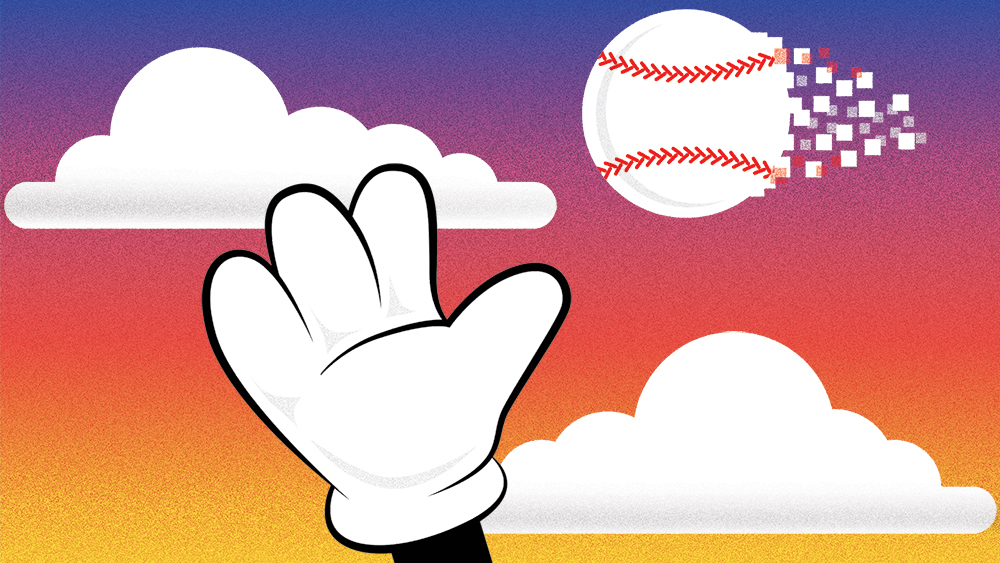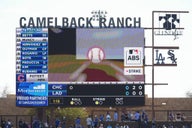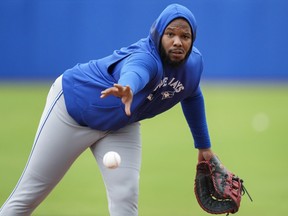
Disney‘s ESPN and Major League Baseball are breaking up after nearly 40 years together, a sign of how even the most durable content relationships have come under scrutiny in the streaming era, with sports rights increasing exponentially and entertainment conglomerates left to figure out how to pay the bill.
“We are grateful for our longstanding relationship with Major League Baseball and proud of how ESPN’s coverage super-serves fans,” ESPN said in a statement Thursday evening. “In making this decision, we applied the same discipline and fiscal responsibility that has built ESPN’s industry-leading live events portfolio as we continue to grow our audience across linear, digital and social platforms. As we have been throughout the process, we remain open to exploring new ways to serve MLB fans across our platforms beyond 2025.”
ESPN and MLB were in the midst of a seven-year deal that started in 2022. But the two sides allowed for an “opt-out” clause in 2025, with either side able to break the pact under certain conditions — a necessary condition, perhaps, in an era when more media companies are eager to snatch up sports rights for their streaming services. At a time when viewers can pick and choose content at a whim, sports remains one of the few formats extant that can draw the large simultaneous audiences that advertisers crave.
Popular on Variety
ESPN notified MLB of its decision to terminate the current deal at 9:45 a.m. Thursday, according to a person familiar with the matter, with ESPN Chairman Jimmy Pitaro following up with Major League Baseball Commissioner later in the day. ESPN pays around $550 million per year for its MLB rights, and executives have been upset in recent years with smaller deals MLB has struck with Apple and Roku that give those outlets exclusive games for smaller annual fees that undermined the prices ESPN had to pay.
At the same time, Manfred told team owners Thursday, executives at MLB have “not been pleased with the minimal coverage that MLB has received on ESPN’s platforms over the past several years outside of the actual live game coverage.”
It’s true that ESPN mainstays like “Get Up” and “First Take” focus heavily on developments in the NBA and NFL. Still, ESPN has tried to create new concepts, like a “KayRod” concept that aired on ESPN2 opposite “Sunday Night Baseball” that featured Alex Rodriguez and Michael Kay in a conversation-heavy “alterna-cast.” Nothing has caught on like the “Manningcast” put on during “Monday Night Football,” or “Inside the NBA,” the popular Warner Bros. Discovery program that ESPN will tap for special broadcasts during the NBA’s next season.
Disney has spent heavily on sports rights over the past few years, sewing up long-term deals with both the NFL and the NBA that cost tens of millions over the course of those contracts. While still called America’s “national pastime,” baseball has not fared as well with audiences as those two rivals. ESPN executives felt the regular-season games and the post-season package the network had wasn’t performing as well as it could for the price the network was paying, according to the person familiar with the matter.
Even so, in the current climate, MLB likely has many options. The league has been ” in conversations with several interested parties around these rights over the past several months and expect to have at least two potential options for consideration over the next few weeks,” Manfred said in his memo.
ESPN may have other ideas for tie-ups with MLB. Pitaro said last year that the company had made a pitch to MLB executives about having ESPN deliver local games via a new streaming service it plans to debut later this year. But Manfred threw cold water on such a notion. “While ESPN has stated they would like to continue to have MLB on their platform, particularly in light of the upcoming launch of their DTC (direct-to-consumer) product, we do not think its beneficial for us to accept a smaller deal to remain on a shrinking platform,” Manfred wrote. “In order to best position MLB to optimize our rights going in to our next deal cycle, we believe it is not prudent to devalue our rights with an existing partner but rather to have our marquee regular season games, Home Run Derby and Wild Card playoff round on a new broadcast and/or streaming platform.”
Major League Baseball has other rights deals with Warner Bros. Discovery and Fox Corp. In recent months it has sought to assert more control over local game broadcasts as regional sports networks based on cable have become weaker.
This post was originally published on this site be sure to check out more of their content.







